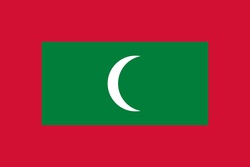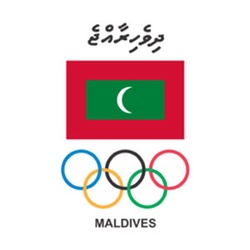Maldives otherwise known as the Republic of Maldives is an island nation in the Indian Ocean and gained independence on 26 July 1965 from the United Kingdom.
The capital is Male and holds the record for being the flattest country in the world. Over the last century, sea levels have risen about 20 centimeters; further rises could threaten the existence of Maldives.
The Maldives's attractions are the islands themselves as they offer the proverbial white sands, blue skies, clear water and palm trees.
Other than that there is an impressive mosque that has a golden dome inside, snorkeling, deep sea diving, fish market and national museum.

































































